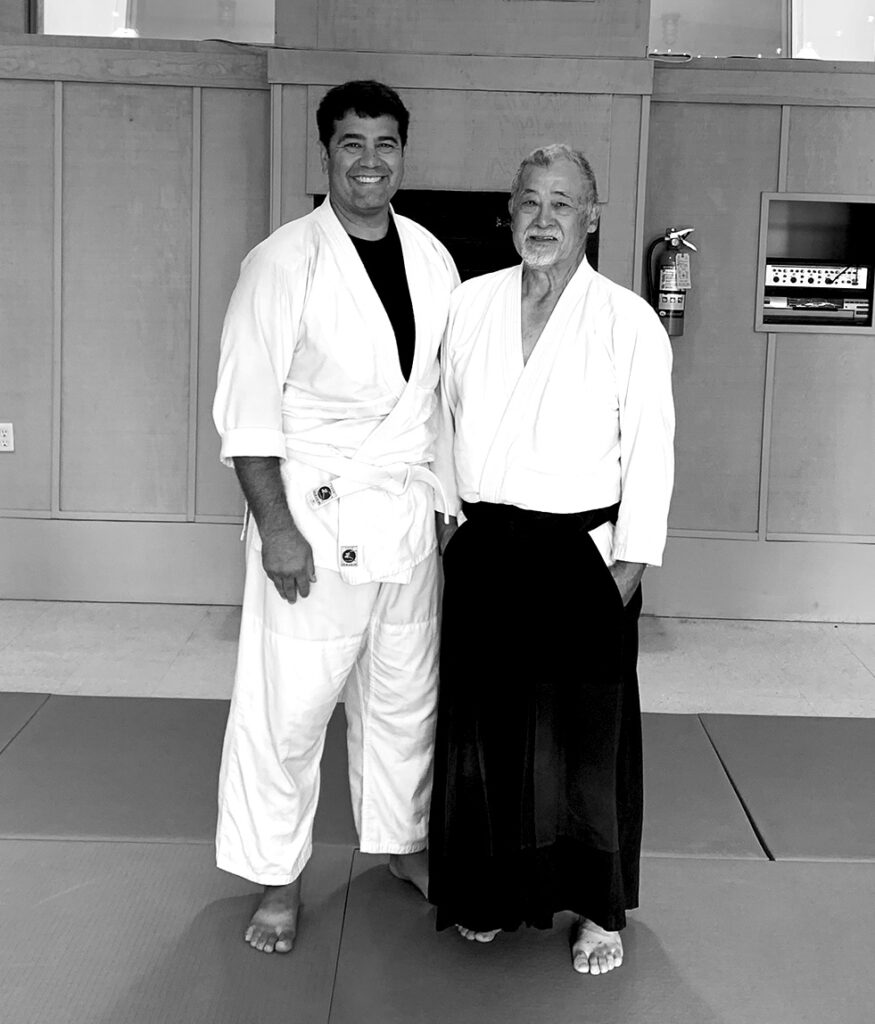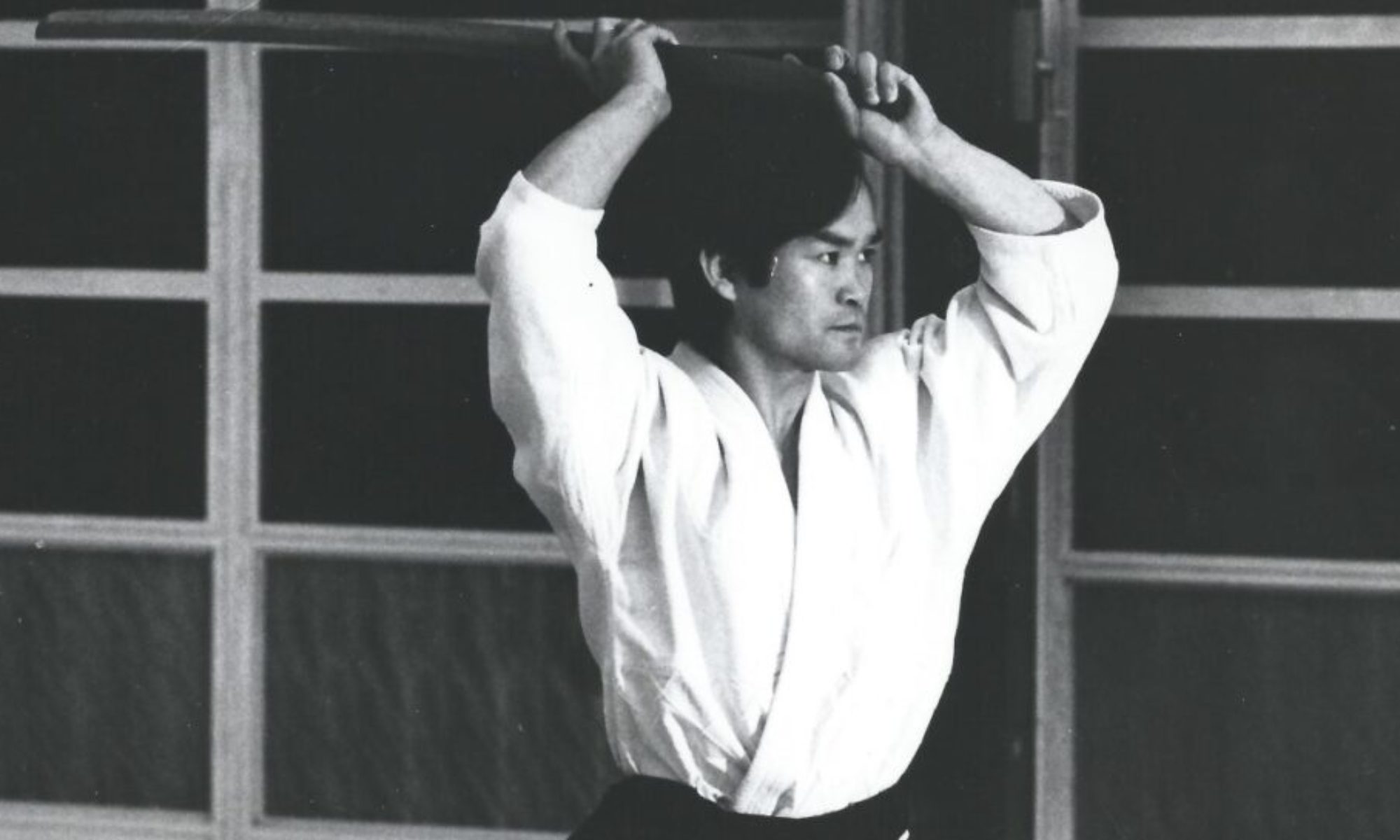Neil Horibe, Tacoma Aikikai
Tacoma Aikikai introduced Gasshuku as “an intimate setting where we can focus on our training and our relationships, while drawing inspiration from the natural world.” As a new Aikido student, the idea of a full weekend of intensive training with unfamiliar practitioners from around the country was a bit intimidating. I would like to say I would have enthusiastically attended nonetheless, but my participation was guaranteed when I learned a particular black belt was going to travel from his home dojo in Denver to train at Camp Indianola – Nobu Horibe, my father.
I have trained in a few different martial disciplines during my life, but not aikido. I cannot definitively say why; I can only guess that it was some combination of the availability of dojos and an obstinate desire to be “tougher” than my gentle father. Regardless of the reason, it is only now, in my mid-forties, that I begin my training at Tacoma Aikikai. After only a few months of training I heard about Gasshuku and told my father, and he immediately started making plans. I am so very, very, glad he did.
Growing up, my father, like many other fathers, loomed large in the minds of his sons regardless of his physical stature. I remember him being a solid and unmovable figure, quick to smile and slow to anger. As a boy, when I asked about his uncanny balance, he would grin and say that Chicago had made him “tough.” While this is undoubtedly true, I later learned it was perhaps an oversimplification. After being interned by the US government in Arkansas during World War II, my grandparents moved their new family to Chicago and my father was born shortly thereafter. The center of their burgeoning Japanese community was the Buddhist temple, where he began aikido as part of a youth program. My father eventually left Chicago and his study of aikido went on a long hiatus, but retirement has given him an opportunity to return to his practice with dedicated vigor.
After I entered adulthood, my affection for my father never changed but my perception of him did. The childlike awe evolved into companionable chats about movies, television shows, or sports when I would see him on holidays a couple of times a year. I would ask my mother over the phone how he was doing, and she would tell me how much he loves watching Korean soap operas on a streaming service and listening to books on tape over his Bluetooth hearing aid. In my mind, he became a kind old man quietly smiling while he slowly moved about the humdrum activities of his simple life.
On August 18, 2023, the first day of Gasshuku, my father walked onto the training mat and transformed. Clad in a white gi and black hakama he entered his element. He was no longer quiet, he was focused; he was no longer slow, he was graceful; he was no longer old, he was wise. Over the next few days I had the pleasure of learning how he practices aikido, and I will treasure the experience for the rest of my life. The teachers and students from Tacoma Aikikai and the aikido community in attendance welcomed him with warmth and respect, and even after the Gasshuku ended my fellow Tacoma Aikikai students would approach me and tell me how it was an honor to train with him.
Gasshuku, Tacoma Aikikai, and the Birankai community gave me a gift beyond measure. They gave me a chance to view my father through their eyes. They gave me a chance to correct my perceptions and experience awe once again. They gave me a chance to connect with my father as part of an amazing, worldwide community of like-minded martial practitioners. He is an aikidoka, and I am an aikidoka, and now we can journey as students of aikido together.

Editor’s note: this article originally appeared in Tacoma Aikikai Journal January 2024 and is reprinted with permission.
